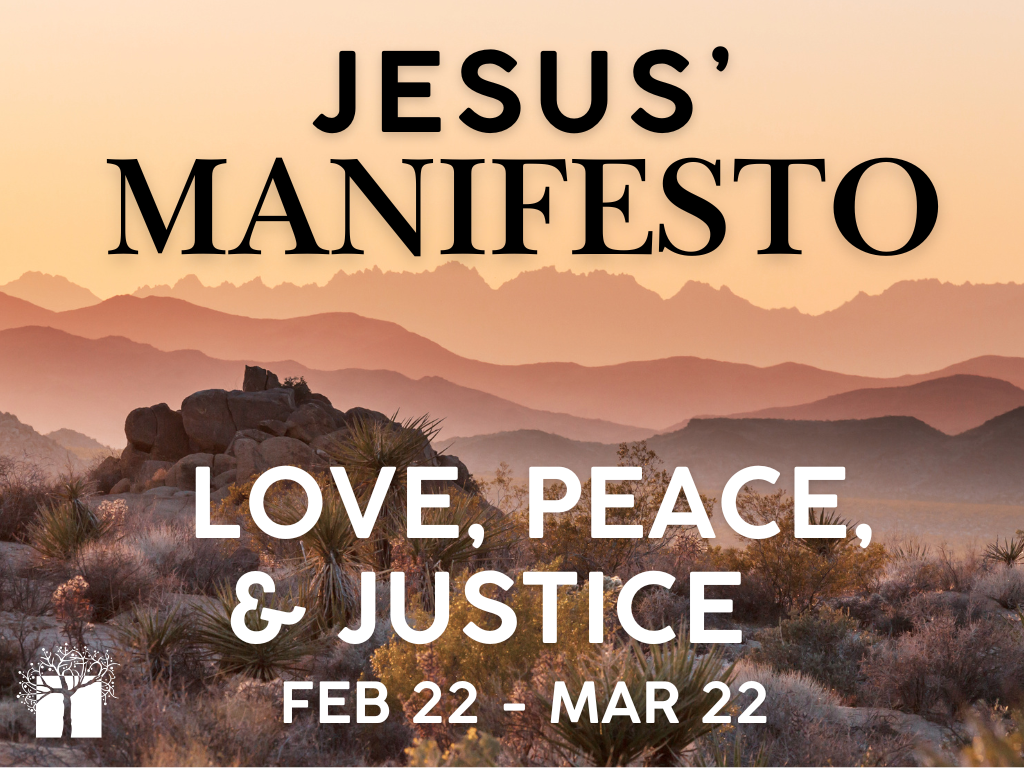Questions for Reflection and Discussion

Current Series: Jesus’ Manifesto of Love, Peace, and Justice
Download questions for Sunday, February 22, Beginning with the End in Mind
Download questions for Sunday, March 1, The Beatitudes: The Upside-Down Kingdom
Download questions for Sunday, March 8, Not This, But That: A Transformed Life
Download questions for Sunday, March 15, The Lord’s Prayer: The Way of Simplicity
Download questions for Sunday, March 22, Don’t Worry, Don’t Judge
Previous Series: The Power of Your Worship Toolkit
Download questions for February 8: Worship to God and for One Another
Download questions for February 15: Worship and the Spiritual Battle
